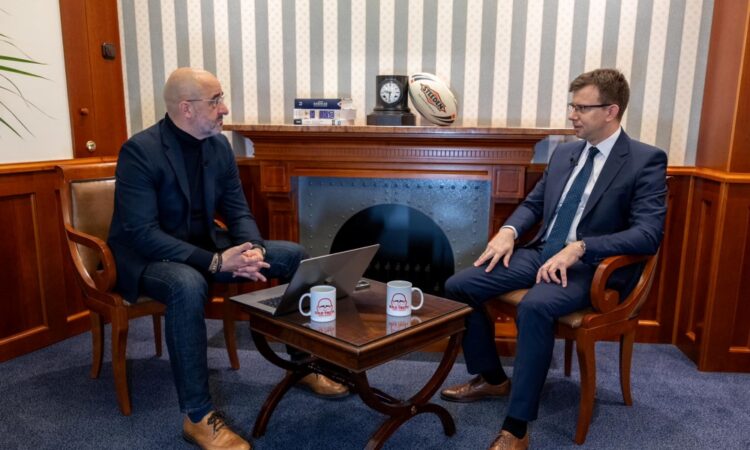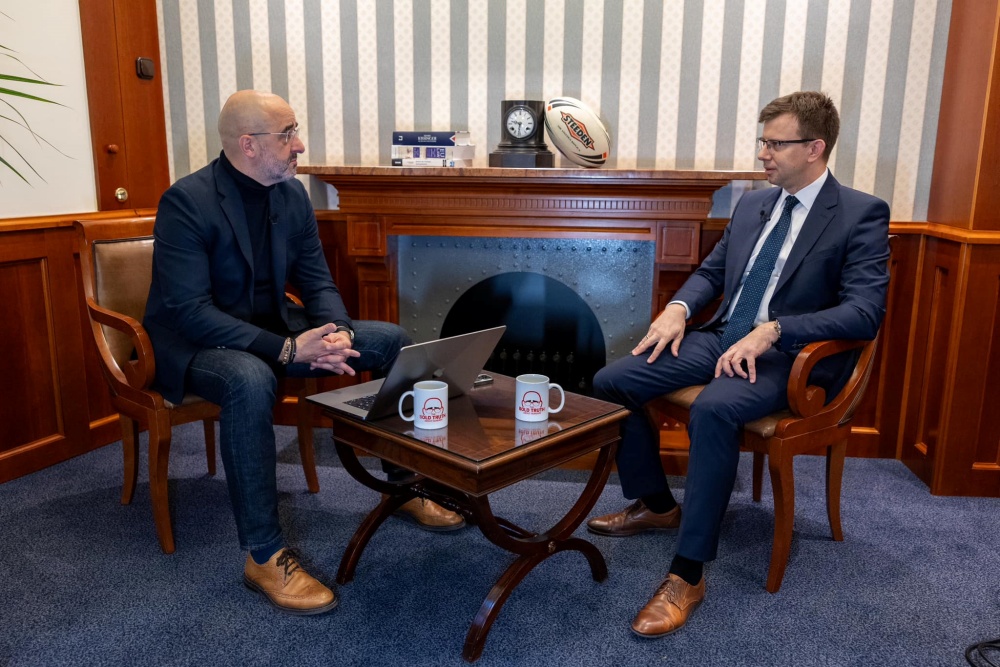

Zoltán Kovács (L) and János Bóka (R) during the discussion.
There is a clear shift in the European Union’s approach to migration, and in many respects they are moving closer to what Hungary has been saying for a decade, Minister of EU Affairs János Bóka said in a podcast, The Bold Truth About Hungary, on Thursday. In the podcast, he had a conversation with Zoltán Kovács, State Secretary for International Communication.
János Bóka said that the focus is currently more on the protection of external borders, the external dimension of the fight against illegal migration, and addressing the root causes of migration. “I see a very important political debate and maybe a political struggle in the near future. I think that at the moment many people do not understand that if it is not the European Union or the Member States that decide who can enter the territory of the European Union, then we do not have a migration policy,” the minister stressed.
He added that
it is useless to have a social policy, an integration policy, or many other policies if we do not have a migration policy, because migration policy starts with the basic principle that we are the ones who decide who can enter our territory.
In his opinion, if we define migration policy on some kind of moral basis and from a moral perspective, we confuse many things. For instance, in that case, it is easy to confuse asylum with migration policy, labor policy with migration policy, or border protection with the reception of asylum seekers.
He added that one solution (which the Hungarian government has been talking about for a long time), is that in case the European Union as a community cannot solve these issues, at least let Member States solve them themselves if they can do so more effectively. Another solution could be for the European institutions and Member States to listen more to the proposals and experience of those Member States that have been protecting the external borders of the European Union for some time and have clear experience.
Answering a question about Brussels linking Ukraine’s accession, support for Ukraine, and the provision of financial assistance to the revision of the Multiannual Financial Framework, the minister said that it was against the spirit of the treaty. “We see that since the beginning of the war in Ukraine, enlargement has become a geopolitical project, not a merit-based process in which objective criteria have to be met.”
He stressed that
this sends a message to all aspiring countries that they should not focus on meeting accession requirements, but on making political arguments and gaining political support inside or outside the European Union.
Asked whether Hungary could eventually reach an agreement with the Commission and receive EU funds, Bóka said: “I think they have to get to that point because they have a huge responsibility for the future of the European project. This responsibility sometimes includes making political decisions and taking political responsibility for projects, even if it is not popular, for instance, in the mainstream Western media.”
In response to a question concerning the coming EU presidency, he stressed that no one seriously believes that Hungary’s presidency in the second half of 2024 can or should be prevented.
What I see in the case of certain institutions and newspapers is that this is part of a political PR campaign against Hungary, which has nothing to do with our ability to manage this presidency,”
the minister said.
Via MTI, Featured image: Facebook/Bóka János







